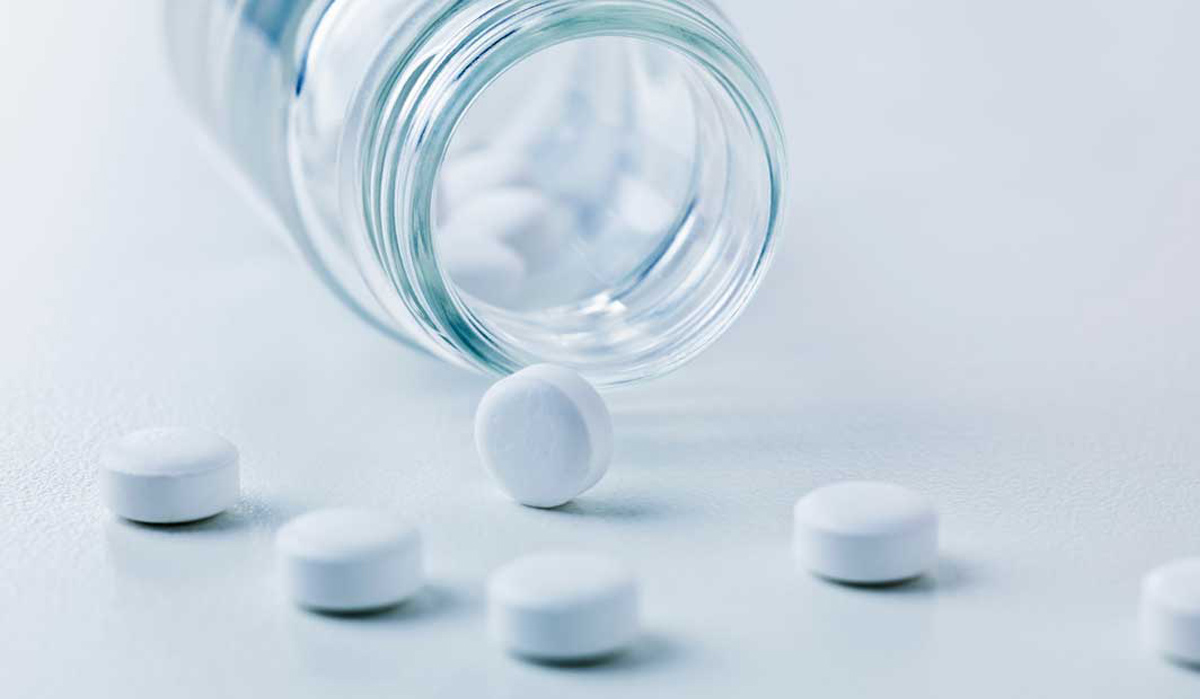Serotonin syndrome: what it is, causes, symptoms & treatments
- Serotonin syndrome, also known as serotonin toxicity, is an adverse drug reaction to serotonergic activating or related medications
- Serotonin syndrome occurs when medications cause high levels of serotonin to accumulate in the body. It can occur as a consequence of normal therapeutic drug use, self-poisoning or when a medication dose is increased or a new one added to the regimen
- Symptoms of serotonin syndrome can include agitation or confusion, muscle tremors, dilated pupils, a high temperature, and a rapid or irregular heart rate
- Immediate medical treatment is required if serotonin syndrome is suspected, as the condition can be life-threatening if left untreated
What is serotonin syndrome?
Serotonin syndrome is a condition triggered by an excess of serotonin (or 5-hydroxytryptamine, 5-HT) in the brain. The illness is a severe drug reaction, and can be caused by taking multiple medications known to increase serotonin levels alongside each other, or by taking an excess dose of one serotonergic drug. Serotonin toxicity is the consequence of excessive stimulation of the central nervous system and peripheral serotonin receptors.
Serotonin is a monoamine neurotransmitter that regulates key functions, including:
- Intestinal movements
- Mood
- Appetite
- Sleep
- Behaviour
- Serotonin also contributes to some cognitive functions such as learning and memory
Serotonin syndrome is not widely studied or researched, and is often underdiagnosed due to the heterogeneity of its presentation, evolving diagnostic criteria, and a lack of awareness among clinicians, which can lead to symptoms being mistaken for features of a pre-existing mental or physical illness.
The incidence of serotonin syndrome is unclear due to the extent of under diagnosis; however, post-marketing surveillance studies suggest an incidence of 0.4 cases per 1,000 patient-months of treatment. It is estimated that around 15% of those who take overdoses of selective serotonin reuptake inhibitors (SSRIs) display features of the syndrome.
Signs and symptoms of serotonin syndrome
Serotonin syndrome symptoms usually start to occur within several hours of the dose of an existing medication increasing, or a new one starting. A triad of autonomic hyperactivity, neuromuscular abnormality, and mental status changes are present in most cases of serotonin syndrome.
Mild symptoms
- Agitation, restlessness or confusion
- Rapid or irregular heart rate
- High blood pressure
- Dilated pupils
Moderate symptoms
- High temperature
- Shivering or sweating
- Diarrhoea
- Loss of muscle coordination, twitching muscles or muscle rigidity
Severe symptoms
- High fever
- Seizures
- Loss of consciousness
- Severe muscle twitching
What causes serotonin syndrome?
Serotonin syndrome is an extreme drug reaction, with some medications carrying a higher risk of this potentially life-threatening side effect than others. Common causes of serotonin syndrome include:
- Starting a course of medication that carries the risk of increased serotonin levels in the brain
- Combining multiple drugs that are known to affect serotonin levels, such as antidepressants and herbal supplements
- Over-the-counter medications that contain dextromethorphan, which is commonly found in cough medicines
- Herbal supplements, such as St John’s wort, when taken in combination with other drugs known to impact serotonin levels
- Illegal drugs, including cocaine, ecstasy and MDMA
Drugs that can cause serotonin syndrome
It is possible that taking just one medication that’s known to increase serotonin levels can cause serotonin syndrome in some individuals. However, the condition occurs most often when certain medications are combined, such as:
- Selective serotonin reuptake inhibitors (SSRIs): this includes antidepressants such as citalopram, fluoxetine, paroxetine and sertraline, which block the reuptake of serotonin in the brain, leading to an increase of serotonin in the brain
- Serotonin and norepinephrine reuptake inhibitors (SNRIs): including antidepressants such as trazodone, duloxetine and venlafaxine
- Bupropion: this antidepressant that’s also used to support smoking cessation is known to increase the risk of serotonin toxicity when used alongside SSRIs or SNRIs
- Tricyclic antidepressants: this includes drugs such as amitriptyline and nortriptyline. Combining these with other serotonergic medications or taking an excessive dose can stop the body from regulating serotonin levels
- Monoamine oxidase inhibitors (MAOIs): these antidepressants break down monoamine oxidase, which in turn breaks down neurotransmitters including dopamine and serotonin, so care must be taken when combining these with other drugs known to affect serotonin levels
- Anti-migraine medications: in particular, the triptans class of drugs can increase serotonin levels, increasing the risk of serotonin syndrome
- Pain medications: including codeine, oxycodone, fentanyl and tramadol
- Lithium: lithium affects neurotransmitter activity, which can disrupt the balance of serotonin in the brain
- Illicit drugs: including LSD, ecstasy, cocaine and amphetamines
- Herbal supplements: supplements including St. John’s wort, ginseng and nutmeg contain active compounds that can interfere with the metabolism of serotonin, potentially leading to elevated levels and an increased risk of toxicity
- Dextromethorphan: a common ingredient in over-the-counter cough and cold medications
- Anti-emetics: medications such as granisetron, metoclopramide and ondansetron reduce feelings of nausea by blocking out serotonin receptors in the central nervous system and the gastrointestinal tract
- Linezolid: this antibiotic is classed as a MAOI, so can therefore increase the risk of serotonin syndrome when used alongside other drugs or supplements
- Ritonavir: this antiviral drug can also increase the risk of serotonin toxicity when taken alongside other medications
Who is at risk of serotonin syndrome?
Some patients are at greater risk of developing serotonin syndrome than others, but there are risk factors that can increase the chance of diagnosis. These include:
- Beginning a new course of drugs known to affect serotonin levels
- Increasing the dose of an existing medication, without guidance from a medical professional
- Taking SSRIs, SNRIs or MAOIs, as these are known to increase serotonin levels
- Mixing prescribed, over-the-counter and herbal treatments
- Illegal drug use
How is serotonin syndrome diagnosed?
Serotonin syndrome is typically diagnosed by reviewing a patient’s symptoms alongside their medication history and recent drug use. Laboratory tests may be conducted to rule out other conditions, while the Hunter Serotonin Toxicity Criteria provides a framework to support diagnosis.
How to treat serotonin syndrome
In the event of a serotonin syndrome diagnosis, immediate medical attention is required:
- Remove the offending medication or interacting drugs
- Activated charcoal may help to prevent absorption in cases of recent ingestion or large overdose
- IV fluids may be required as a supportive measure
- Benzodiazepines can be used in severe cases to control agitation. These cases will most often require hospitalisation
Potential complications of serotonin syndrome
If left untreated, serotonin syndrome can be fatal. If symptoms are not treated promptly, they may lead to seizures, and potentially multiple organ failure. Other complications associated with serotonin toxicity can include:
- Autonomic dysfunction, impacting the nervous system
- Severe muscle breakdown, following prolonged tremors or rigidity
- Hallucinations resulting from the confusion and agitation that are common signs of the illness
How long does serotonin syndrome last?
Mild cases of serotonin syndrome usually resolve within 24 hours of the offending medication being withdrawn, and may need supportive measures only. Beware of medications with long half-lives or active metabolic substrates (for example, fluoxetine), where effective treatment may take longer. Many cases resolve within 24 to 72 hours if appropriate treatment is given, but extended monitoring and treatment may be required in particularly severe cases.
How to prevent serotonin syndrome
Irrespective of the setting you work in, the key to preventing serotonin syndrome is to understand the condition, including its signs and symptoms, thus ensuring the patients you care for have this knowledge too. Being aware of the pharmacological causes of serotonin syndrome is important, and caution should be taken in the dispensing and prescribing of serotonergic medications.
All patients starting SSRIs should be counselled about:
- Potential interactions (including with over-the-counter and ‘herbal’ medication)
- The symptoms of serotonin toxicity and serotonin syndrome
- Improved awareness and knowledge of the syndrome among the medical and pharmacy community, with particular care taken when changing SSRIs or prescribing more than one antidepressant
- Improved pharmacogenetic understanding to identify those at increased risk
- Adequate post-marketing surveillance of new serotonergic therapies
Join the UKCPA Pain Community
Share your experiences of managing serotonin syndrome or build your confidence in identifying the signs and symptoms of the condition by joining the UKCPA Pain Community. Become a member for less than £3 per week to:
- Access an extensive resource library
- Take part in dedicated forum discussions
- Receive ongoing education and training led by experienced experts
- Attend networking events (both in person and online) to connect with fellow pharmacy professionals
Further reading
- Sternbach H. The serotonin syndrome. Am J Psychiatry. 1991. 148(6):705-13.
- Dvir Y, Smallwood P. Serotonin syndrome: a complex but easily avoidable condition. Gen Hosp Psychiatry. 2008. 30(3):284-7.
- Boyer EW, Shannon M. The serotonin syndrome. N Engl J Med. 2005. 352(11):1112-20.
- Isbister GK, Buckley NA. The pathophysiology of serotonin toxicity in animals and humans: implications for diagnosis and treatment. Clin Neuropharmacol. 2005. 28(5):205-14.
Acknowledgements
Parts of this article are based on an original piece by Yousaf Ahmad, Chief Pharmacist for the largest independent healthcare organisation in NHS England. He is passionate about pharmacy practice, workforce transformation and the integration of pharmacy teams in all sectors of care.


